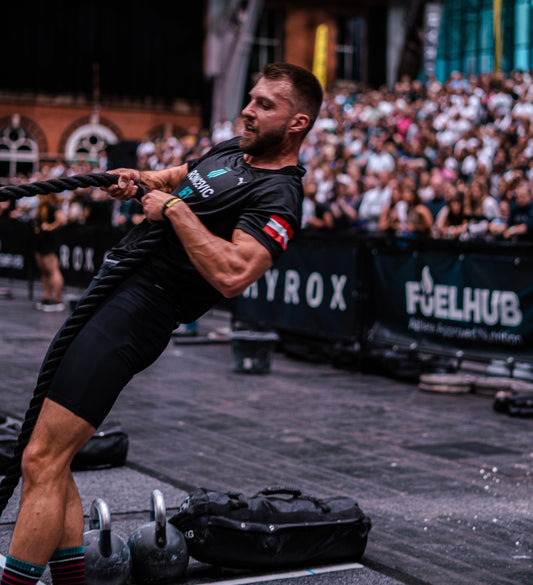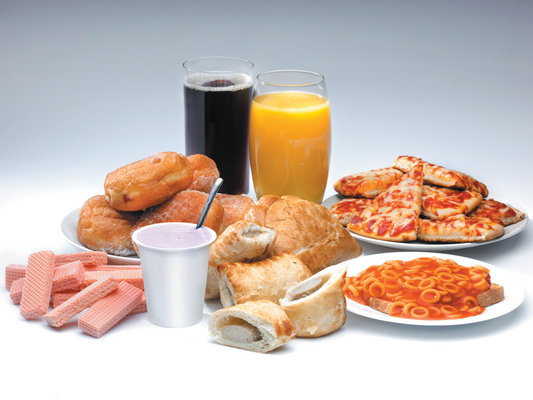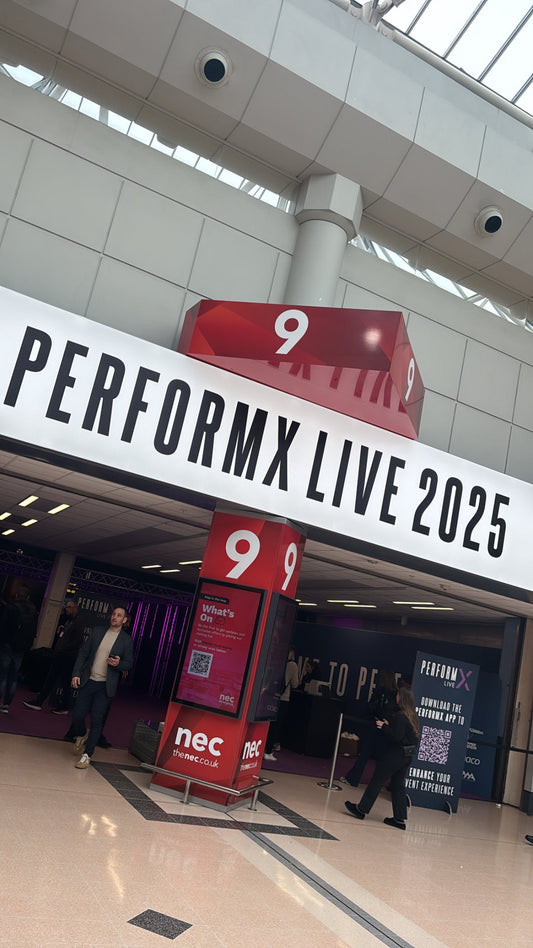There’s no one way to fuel a ride — every cyclist has their own approach and preference. But, without a doubt, every seasoned cyclist knows that what you put in the body directly impacts your performance on the road. Neglecting proper nutrition can leave you feeling sluggish, drained, and lacking in that all-important pedal power.
If you’re struggling to know where to start with cycling-optimised nutrition, we’re here to help. We’ll dive into what exactly should be going into your pre-cycling meal and post-cycling meal to maximise performance and recovery.
Pre-cycling meal planning
Getting ready for a long ride means checking your bike's air pressure, oiling the chain, and eating right. Here’s a closer look.
Macronutrients to prioritise
Don’t be intimidated by the term “macronutrients”. They might sound technical, but macronutrients are simply the three nutrients that make up a diet — carbohydrates, proteins and fats.
Before a cycle, you want to get the balance between these three macronutrients just right. Carbohydrates, specifically carbohydrates with a low glycaemic index, should be the basis of your pre-cycle meal. They’ll provide a sustained release of energy that will keep you going for longer. Whole grains, beans and legumes, green vegetables and sweet potatoes are all great options.
You should balance out these low-GI carbs with a healthy portion of fats, protein, and fibre, but try not to go overboard — these take longer to digest and can lead to digestive problems during your ride. Equally, avoid sugary carbs like fruit juice or biscuits which could cause a blood sugar spike and crash.
Don’t just “eat and go”
When you should eat before cycling all comes down to the size of your pre-cycling meal. Ideally, you would have a large, carbohydrate-rich meal two-to-four hours before your ride. This should give you plenty of time to digest and allow for a carb-fuelled, comfortable cycle.
For smaller meals, like breakfast, we would suggest leaving up to two hours before setting off. This will prevent you from feeling uncomfortable or having any digestive upset during your ride.
If you prefer to exercise on an empty stomach, we would still recommend having at least a small snack 30 minutes before so that you have enough in the tank to make the most of your ride.
Pre-cycle meal ideas
It’s one thing to know what you should be eating before a cycle, but it’s another thing to find the time to come up with a recipe and prepare it. Our cycling meal plans have fuelled the gold-winning GB Olympic Cycling Team for over three years, and we’re proud to offer a range of customised cycling diet programmes.
Here are some of our pre-cycling favourites to inspire you:
-
Our Banoffee Overnight Oats — Enjoy 19g of protein hot or cold, perfect for fuelling a morning ride.
-
Our Tikka Chicken with Sweet Potato — The sweet potatoes low GI index will keep you going for longer and the chicken breast will keep you topped up with a whopping 57g of protein, perfect for an interval-heavy ride.
- Our Greek Chicken Tabbouleh with Tzatziki — Tabbouleh offers a nice low-GI alternative for your carbohydrates and the tzatziki provides you with plenty of healthy fats.
Post-cycling meal planning
What you eat after your cycle is just as important as what you eat before. It’s vital to replenish carbohydrate stores used during the ride and supply the body with plenty of amino acids and fats to help build and repair your muscles. So, what’s the best practice for post-cycling meals?
Macronutrients to include
Once again, in your post-cycling meal, you’ll want to strike a careful balance between carbohydrates, fats, and protein.
One of the biggest differences between your pre and post-cycling macronutrient nutrition is that post-ride you should opt for carbs with a high glycemic index. Why? Because they’ll rapidly restore the depleted glycogen levels in your muscles and restore your blood glucose back to normal post-exercise. Some good sources of post-cycle carbs include sports drinks, bagels, and white bread.
It’s also crucial to incorporate plenty of protein in your post-cycling meal. High-protein foods help to build and repair muscles, replenish glycogen stores and speed up recovery. Some great protein-rich foods include chicken, eggs and tofu.
The golden hour
The golden hour is the 30-90 minute period after exercise when your body is most able to absorb nutrients and recover from your cycle.
This is the absolute optimal time to have your post-cycling meal. During this “golden hour”, your muscles are in an anabolic state — this means they are building new cells and tissues, including muscle. By properly nurturing your body during this period, you’ll build muscle faster, and be able to push even further on your next ride.
Make sure you’re getting in all the important macronutrients we described above to help make the most of this important but relatively short-lived time.
Post-cycle meal ideas
Lost on post-cycle meal ideas? Explore our selection of cycling meal plans or take inspiration from some of our favourites below:
-
Our Salted Caramel Protein Bar — A post-cycle sweet treat packed with 17g of protein and 23g of high GI carbs. What’s not to like?
-
Our BBQ Chicken Burrito — Tortilla loaded with high-protein chicken thigh, high GI rice, crunchy veg for fibre and smothered in BBQ sauce.
-
Our Chicken Pesto Pasta — White pasta has a high GI to replenish your glycogen stores post-ride, making this a great option for recovery.
Fuel the tour with FuelHub
Our meal plans for cyclists make getting the nutrients you need easier than ever. Backed by experience at the highest level, we know what it takes to fuel success.
We’ve been fuelling Team GB cycling for over three years, and our high-carb and high-protein meals powered Katy Marchant, Emma Finucane and Sophie Capewell to Team GB's first-ever Gold in the women's team sprint, at the 2024 Paris Olympics. Train like a champion and cut out the middleman with Fuel Hub.


